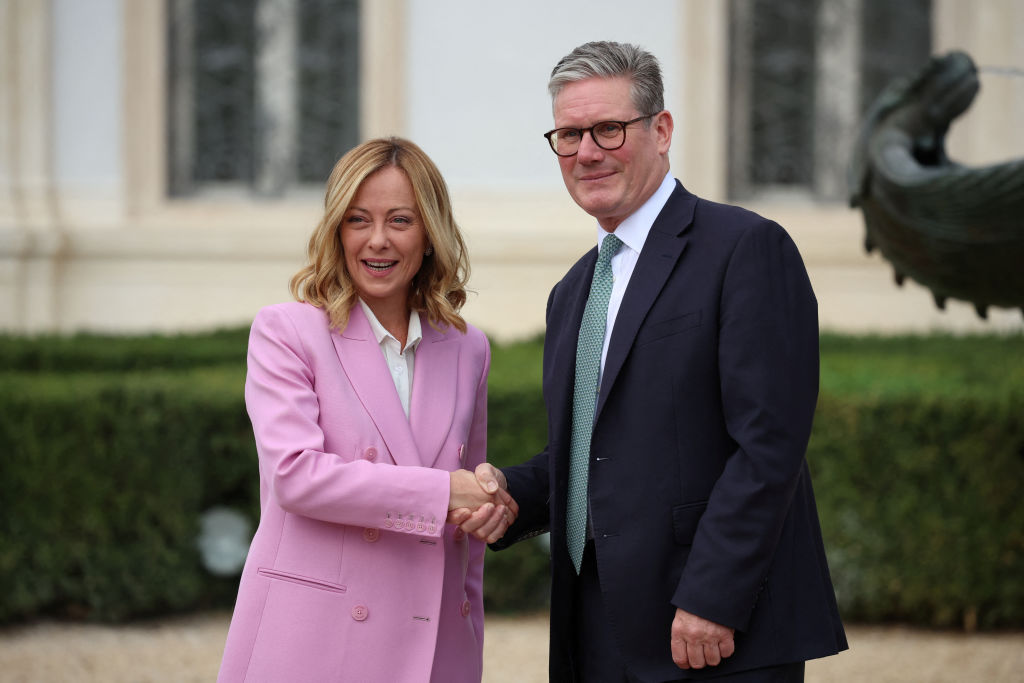
This week, Keir Starmer made a big step towards closer working with the European Union. Cue cheers and applause from centrists around the UK? Absolutely not! The Prime Minister was actually bombarded with criticism. All those who see the UK prospering with closer ties to the EU should have been celebrating. Instead, they had a problem with Keir Starmer becoming too closely associated with Italian Prime Minister Giorgia Meloni (who is from a very different political tradition to the Labour party).
It is one of the hardest truths of successful foreign policy that you don’t get to choose the politics of the leaders you meet and negotiate with. That’s a matter for their domestic politics. Though, diplomats who have seen Prime Minister Meloni in action within the EU say that she is a good European. In any case, international co-operation is based on shared interests – and there is currently no greater shared interest between European countries than security. In fact, it’s table stakes for any deepening of UK-EU relations for two main reasons.
The first is blunt, and it is one I heard Olaf Scholz set out at a meeting in Rome shortly after the Russian invasion of Ukraine. “Europe,” he said, “has always had two pillars – economy and culture. Now we have to create a third – defence and security.” There is currently no more urgent shared interest than that, and the UK should be at the centre. With the country’s central role in Nato, its military capabilities, and its security services – including GCHQ – it can play a pivotal role in security co-operation. In this way, the UK can become a trusted partner again in Europe after the instability of four very different Tory prime ministers in just five years.
So why start the conversation by meeting with a populist right-wing Italian Prime Minister to talk about small boats? Because, fundamentally, security starts with a country’s borders. Voters who see their government unable to control who enters their country – whether that is Italy, the US, or the UK – question the ability of that government to secure their country and its future. Security is a continuum from borders to safe streets through to cybersecurity and national security. If a government cannot deliver on the fundamentals, why should voters trust them with grander projects like national renewal?
This leads us to the second profoundly important reason for this move by Keir Starmer: Brexit and the changed political landscape it created. It has always been political folly for centrists to believe that Brexit can be reversed. Voting to leave the EU may have been one of the most economically damaging decisions the UK has ever made, but it was also one of the most democratic. There is no reversing it that does not show contempt for half of our fellow citizens.
What to do? Go with the grain of public opinion. “Take back control” was the slogan – take it seriously. It is a “security frame” for the political choices of a government. Rishi Sunak utterly failed on that. He made an absolute pledge – “Stop the Boats” – and when he couldn’t achieve it he was punished. In contrast, when Keir Starmer visited Europol when he was opposition leader there was no pushback from voters. It fitted into a narrative of security and control – and it was consonant with Keir Starmer’s experience as a prosecutor and his character of unflashy competence.
There is a lot of noise surrounding the meeting between Starmer and Meloni – with mischievous suggestions the UK wants to copy Italy’s offshore immigration processing arrangement with Albania. But the signal is clear – all avenues of security co-operation and intelligence sharing will be explored by the UK to smash the people-trafficking gangs. And while the road to public acceptance of closer engagement with the European Union doesn’t end with security, it certainly starts there.
[See also: Why Sue Gray’s salary has sparked fury in Labour]






